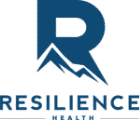Prescription drug addiction is used by the medical community to help patients manage symptoms and heal their bodies. Many of the drugs contain powerful ingredients that can lead to addiction. Prescription drugs are the second highest form of abuse in the United States, and the epidemic is affecting more young adults and adolescence. They may have a prescription for the drugs, take them from family members or buy them on the street. The most commonly abused prescription drugs are opioid pain killers.
Which Prescription Opioids Can Lead to Addiction?
Opioid prescription drug abuse is seen with:
- Oxycodone
- Hydrocodone
- Morphine
- Hydromorphone
- Codeine
- Tramadol
- Meperidine
What is Prescription Opioid Addiction?
Using prescription drugs in a way that is considered recurring and resulting in adverse consequences is considered addiction. The frequency and amount of the medication that is used varies. A person may abuse the drugs by:
- Taking more than what is prescribed
- Ingesting the drug in an alternate form, such as injecting an oral medication
- Taking drugs that are prescribed to another person
What are the Signs of Prescription Drug Addiction?
Someone who is addicted to prescription drugs may show signs of the problems, such as:
- Losing interest in work, school, family and activities
- Isolating from friends and family
- Using the drug despite loss of job and relationships
- Experiencing sudden issues with health
- Engaging in risky behaviors
What Changes in Behavior May Be Caused by Prescription Drug Addiction?
Anyone is at risk for becoming addicted to today’s most powerful prescription drugs, even those who only take the medications as prescribed. Behavior changes related to prescription drug addiction may include:
- Lying about the amount of drug that is being ingested
- Requesting refills earlier or more frequently than expected
- Becoming defensive about the abuse
- “Drug seeking,” a behavior in which a person uses several physicians for their pain and mental health medications
- Asking others for their prescription drugs
How Does Prescription Drug Addiction Affect the Body?
Prescription drug addiction leads to four main types of physical symptoms:
- Physical dependency in which the brain does not function properly without the drug. This results in withdrawal symptoms that vary by drug.
- Craving the prescription drug, which may involve a person counting down the time to the next dose
- Building a tolerance to the drug that requires higher dosing to alleviate the pain and other symptoms
- Inability to stop using the medication, such as a person who takes a painkiller temporarily and continues using after the pain subsides
Do I Need Professional Help for My Prescription Opioid Drug Addiction?
The effects of withdrawing from opioid prescription drugs can be dangerous (due to dehydration and electrolyte imbalances leading to cardiac failure). If you have been using stimulants, opioids or depressants for a period, work with your physician to develop a safe method for stopping the drug. For those who are addicted to opioid prescription drugs, we encourage you to enlist our team to help you overcome your addiction using the only proven protocol to achieve high long term sobriety rates.
What Is An Example of Prescription Drug Abuse?
Prescription drug abuse and addiction can manifest in many different ways, depending on the person and what their addiction behaviors are like. However, common examples of prescription drug abuse can look like stealing a friend’s prescription painkillers to grinding up pills into powder to snort them. Many people who suffer from prescription drug abuse will participate in hidden, destructive activities similar to this.
Are There Any Strategies That Can Help Prevent Drug Addiction?
There are multiple strategies that can help people avoid addiction and use their prescription medications as properly intended. While addiction is a difficult thing to prevent, the following strategies can help patients become aware of what other methods for pain relief exist besides prescription medication abuse:
- Education: Sharing information and educating a patient on drug laws as well as the details of their prescribed medications can help them understand exactly what their medication was designed for and how it will bring them pain relief and improve their health.
- Healthy coping skills: Patients in environments and communities that encourage them to develop skills that allow them to manage both physical and emotional pain in healthy ways may prevent them from falling into drug addiction when they are prescribed medication.
- Prevention programs: Personalized prevention programs can be hugely beneficial to patients who have a history of addiction or have struggled with drug abuse in the past. If a patient knows they will need a prescription medication, prevention programs can help them mentally and physically prepare for what is required of them to properly take their medication, free from abusive or addictive behaviors. These programs may involve group therapy, family counseling, coping mechanisms, and education.
What Is The Difference Between a Legend Drug and a Controlled Substance?
A “legend drug” is another name for prescription medications or prescription drugs. As both narcotics and non-narcotics, legend drugs are only prescribed and dispensed by medical doctors, practitioners, optometrists, veterinarians, and dentists.
The term “controlled substance” refers to drugs that have a high potential for abuse or addiction. Controlled substances are divided into different classes of drugs called Schedules 1 - V, depending on their medicinal value.
Why Do People Become Addicted to Prescription Medications?
Prescription medications often offer temporary relief from a lot of pain many people experience. By relieving their symptoms, prescription medications not only become a source of comfort for many patients but it can also activate the brain’s reward center, allowing patients to believe that once their medication is taken, they are rewarded with relief from pain. As a patient begins to build up physical dependence, or drug tolerance, toward their prescription medications, it can be easy for them to feel that their medication is an absolute necessity in life.
Do I Need Professional Help for My Prescription Opioid Drug Addiction?
The effects of withdrawing from opioid prescription drugs can be dangerous (due to dehydration and electrolyte imbalances leading to cardiac failure). If you have been using stimulants, opioids, or depressants for a period, work with your physician to develop a safe method for stopping the drug. For those who are addicted to opioid prescription drugs, we encourage you to enlist our team to help you overcome your addiction using the only proven protocol to achieve high long-term sobriety rates.
Contact Resilience Health Today
Second, only to marijuana, prescription drugs are amongst the most abused drugs in the nation. A person may experience prescription drug addiction by overusing their medications or by trying the drugs on a recreational basis. Because withdrawing from prescription drugs can be life-threatening, we encourage you to contact our team to learn more about our medical detox and long term medical treatment services.


